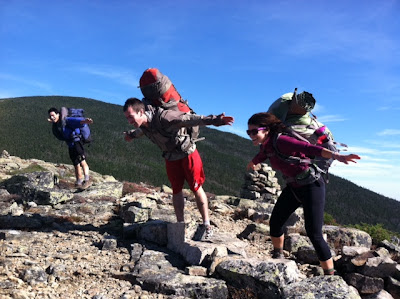happiness is like a train on a track/coming towards us/stuck still/no turning back
-Florence and the Machine
On a long run with a friend the other day, I was going through all the next big decisions I have to make, all the things I feel I need to figure out about my next steps and how many things I just don't know yet that I feel I should know or need to know soon -
and she just said, Erica. Listen to yourself. If this time last year someone had said to you, in one year you will have passed the boards, done well in third year clerkships, be very invested and so satisfied in your relationship with your partner, and be doing yoga and running more consistently than you have for a long time,
you would say, WOW. I can't wait until December 2011!
So what is this stress about?
I think sometimes I forget how to just sit with happiness. I've become so used to having to think three steps ahead that it actually makes me nervous to think that I might just... be happy?
So I think of things that are still not going as well as I think they could, or things that I still don't know, or the next big obstacle or test I'll have to confront.
When really I should be just grateful.
So this holiday season and as I ring in the new year, instead of resolutions, I'm going to focus on being happy and grateful for everything I have experienced this year instead of worrying about the challenges that next year will bring.
To get you in the celebrating mood, check out my new favorite artist Janelle Monae in this video, for more of her check out TIGHTROPE for some MJ caliber dancing. YESSSSSS.









































